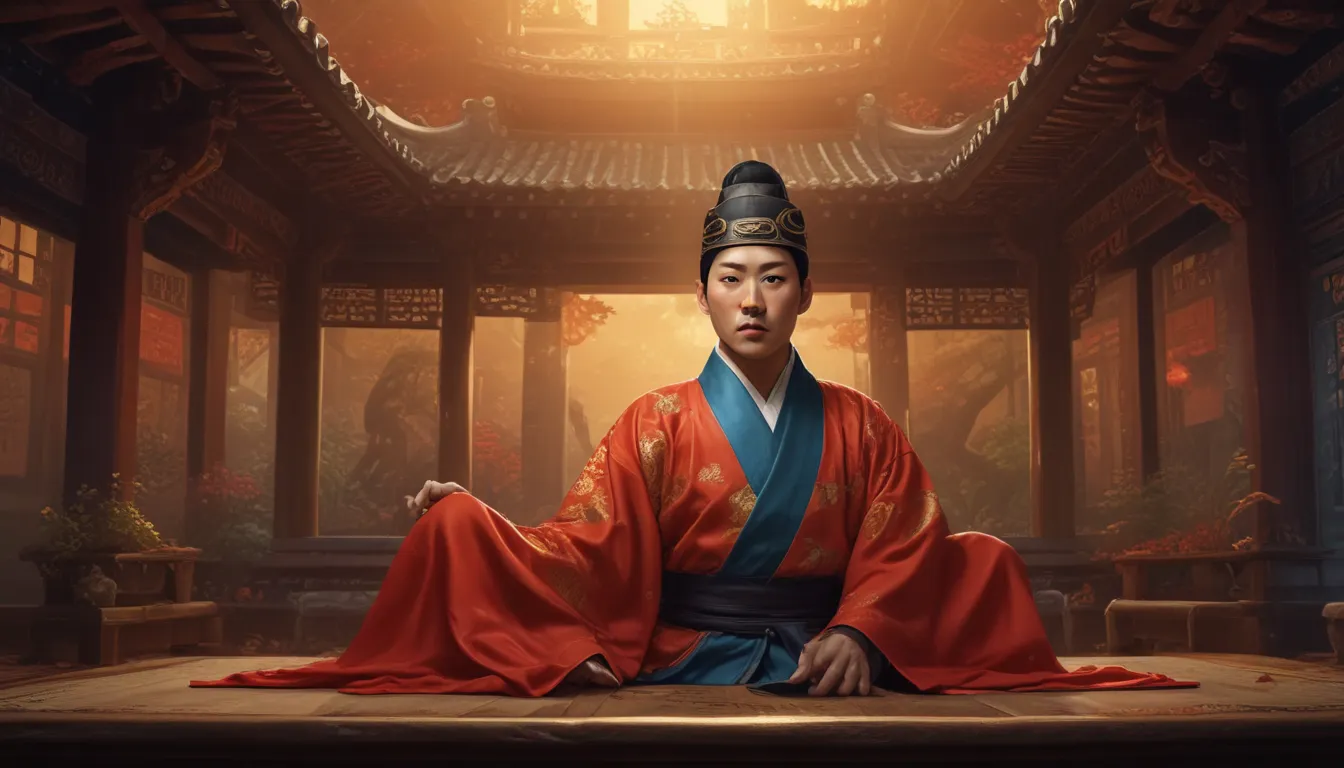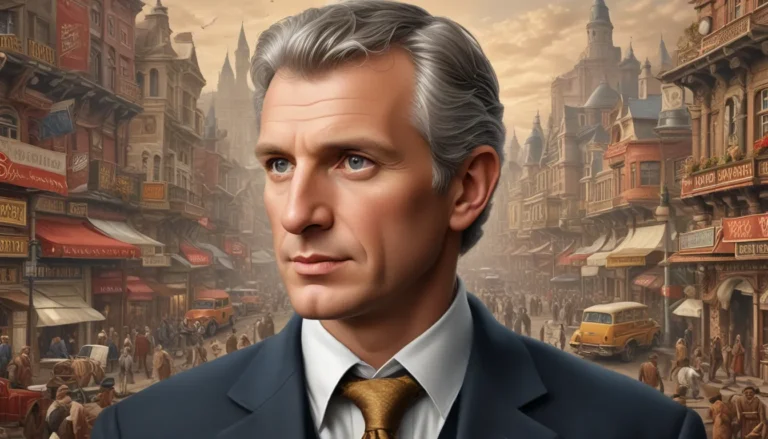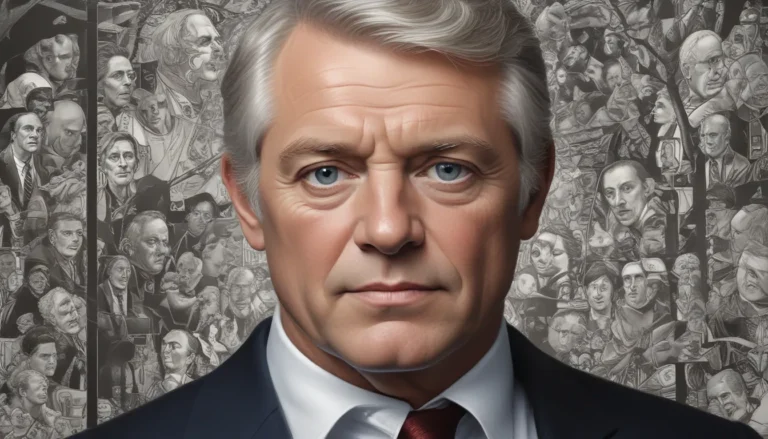The images in our articles may not match the content exactly. They are used to grab your attention, not to show the exact details in the text. The images complement the text but do not replace it.
Roh Tae-woo, a prominent figure in South Korean politics, is renowned for his significant contributions to the nation’s history. Serving as the President from 1988 to 1993, Roh Tae-woo steered South Korea through a period of transformation and development. However, beyond his well-known achievements, there are numerous lesser-known facts about this remarkable leader that shed light on his influence and impact on South Korean society. Join us as we delve into the life and legacy of Roh Tae-woo and uncover 13 fascinating facts that make him a crucial figure in South Korean history.
Key Insights About Roh Tae-woo:
- Roh Tae-woo led South Korea through a transition from military rule to civilian leadership, focusing on economic growth, environmental conservation, and peaceful relations with North Korea.
- Despite facing controversy, Roh Tae-woo’s presidency marked significant progress for South Korea, including democratic reforms, international recognition, and contributions to peace efforts on the Korean Peninsula.
Roh Tae-woo: A Glimpse into His Life and Achievements
1. Becoming the President of South Korea in 1988
Roh Tae-woo, a former general and politician, assumed the presidency of South Korea in 1988 after winning the presidential election. His victory marked a pivotal moment in the nation’s history as it transitioned from military rule to civilian governance.
2. Hosting the 1988 Summer Olympics in Seoul
As President, Roh Tae-woo played a crucial role in organizing and hosting the 1988 Summer Olympics in Seoul. This event was not only a testament to South Korea’s progress but also signaled its emergence as a global player on the world stage.
3. Initiating the “Northern Policy” towards North Korea
Roh Tae-woo’s presidency was notable for his initiation of the “Northern Policy,” aimed at engaging with North Korea diplomatically and economically to promote peace and stability on the Korean Peninsula.
4. Implementing Democratic Reforms
During his time in office, Roh Tae-woo implemented significant democratic reforms that promoted greater openness and transparency in South Korean society. These reforms laid the foundation for an expanded civil society and a renewed focus on human rights.
5. Facing Controversy and Protests
Despite his accomplishments, Roh Tae-woo’s presidency was marred by controversy and protests, with concerns raised about perceived corruption and issues related to democratization.
6. Legacy of Economic Development
Recognizing the importance of economic growth, Roh Tae-woo focused on modernizing industries and attracting foreign investment to bolster South Korea’s economic success.
7. Commitment to Environmental Conservation
Roh Tae-woo actively promoted environmental conservation initiatives during his presidency, emphasizing the importance of sustainable development and preserving South Korea’s natural resources.
8. Participating in the Historic Inter-Korean Summit
Even after leaving office, Roh Tae-woo continued to play a role in Korean politics by participating in the historic inter-Korean summit in 2000, contributing to efforts for reconciliation and peace.
9. International Recognition for Advancing Democracy
Despite the controversies surrounding his presidency, Roh Tae-woo received international recognition for his contributions to advancing democracy in South Korea, receiving the Order of Diplomatic Service Merit.
10. Leading the Establishment of APEC
Roh Tae-woo’s leadership extended beyond South Korea as he played a crucial role in the establishment of the Asia-Pacific Economic Cooperation (APEC) forum, promoting economic cooperation and trade among member countries.
11. Commitment to National Defense
As a former military general, Roh Tae-woo emphasized the importance of national defense and made efforts to enhance South Korea’s defense capabilities.
The Enduring Legacy of Roh Tae-woo
In conclusion, Roh Tae-woo’s presidency marked a period of significant change and progress for South Korea. Despite facing controversies, his legacy includes his contribution to democratization, economic development, and peace efforts on the Korean Peninsula.
Frequently Asked Questions
- Who is Roh Tae-woo?
-
Roh Tae-woo is a prominent South Korean figure who served as a military general and later became the country’s first civilian president.
-
When was Roh Tae-woo in power?
-
Roh Tae-woo served as the President of South Korea from 1988 to 1993.
-
What were Roh Tae-woo’s major accomplishments?
-
Roh Tae-woo led South Korea’s transition to a more democratic society, focused on economic growth, and promoted peace on the Korean Peninsula.
-
How did Roh Tae-woo contribute to peace on the Korean Peninsula?
-
Roh Tae-woo pursued engagement and dialogue with North Korea, fostering moments of reconciliation and cooperation.
-
What is Roh Tae-woo’s legacy?
- Roh Tae-woo’s legacy includes his contributions to South Korea’s modernization, hosting the Olympics in Seoul, and promoting regional stability and peace.
In the ever-shifting landscape of South Korean politics, Roh Tae-woo stands out as an extraordinary figure whose leadership and vision steered the nation towards progress and development. His enduring impact on democratization, economic growth, and international relations continues to shape South Korea’s trajectory. Roh Tae-woo’s legacy serves as a reminder of the power of leadership, determination, and foresight in shaping a nation’s destiny.






